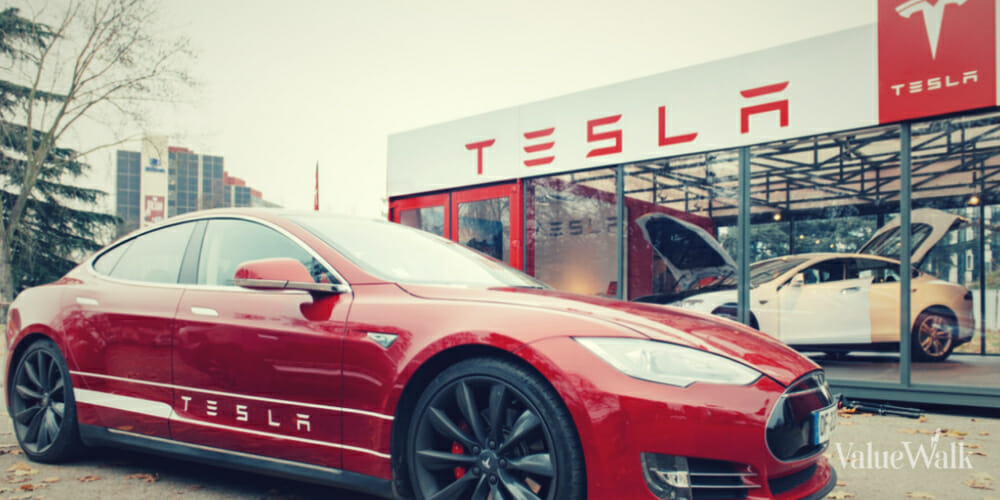- Elon Musk has sold billions worth of Tesla stock this week.
- The likely scenario is that he’s trying to deleverage his investment in Twitter.
- Musk also seems certain we are heading towards a recession, which he has spoken about since May.
- He could be planning to rebuy shares when they are cheaper, which would follow what Tesla has agreed to do.
Elon Musk and his company Tesla (NASDAQ:TSLA), have been in the spotlight in recent months, particularly since he made Twitter private through a $44 billion acquisition.
Q3 2022 hedge fund letters, conferences and more
Find A Qualified Financial Advisor
Finding a qualified financial advisor doesn't have to be hard. SmartAsset's free tool matches you with up to 3 fiduciary financial advisors in your area in 5 minutes.
Each advisor has been vetted by SmartAsset and is held to a fiduciary standard to act in your best interests.
If you're ready to be matched with local advisors that can help you achieve your financial goals, get started now.
Since first announcing his acquisition of the platform, Musk has sold $22.9 billion worth of Tesla stock. A large amount of those shares were sold this week, including 22 million sold on Thursday alone.
Musk's reason for selling shares remains a mystery, but here are some theories about why.
Funding Twitter Acquisition
The most obvious reason that has been floating around social media recently is that he wanted the cash to fund his acquisition of Twitter. More specifically, it seems plausible that he's using the proceeds of the sale to help deleverage his investment.
Musk reportedly borrowed $13 billion to finance the Twitter deal through bank loans. With soaring interest rates combined with the platform's loss-making proclivities, he could be plugging some of Twitter's holes to buy him the runway to turn the platform into a profitable venture.
To support this theory, Musk gave us a cryptic clue on December 14 in the form of a tweet:
"At the risk of stating obvious, beware of debt in turbulent macroeconomic conditions, especially when Fed keeps raising rates."
This goes hand in hand with Musk's previous bearish statements about the economy in general. He could therefore be selling Tesla shares at what he believes could be a relative premium to where they might trade for six or so months from now.
Musk Is Bearish In The Short Term
Musk said in June that he had a "super bad feeling about the economy," which came with a directive for Tesla to pause all hiring and cut 10% of its staff in an email sent to Tesla executives. Since those comments were made, the Federal Reserve has made a series of historical interest rate hikes, which has put the US further on the brink of a recession.
Then earlier on Twitter, when asked if he believes that a recession is imminent, he replied:
"Yes, but this is actually a good thing. It has been raining money on fools for too long. Some bankruptcies need to happen."
So Musk certainly believes that the economy, as well as the stock market, and by extension, Tesla shares have a lot more room for heading lower in the future. This is despite the company losing 60.58% of its value year to date and trading near the bottom of its 52-week low.
On The Other Hand
Musk's belief that Tesla's shares can be bought at a discount in the near future could mean he's planning to rebuy them at a lower price, thus increasing his net ownership in the company.
The Tesla board agreed to make a "meaningful buyback" in 2023 as part of its Q3 earnings call, so it's not outlandish to believe that Musk is planning to do the same with his personal fortune.
And on a separate matter, much criticism of the billionaire has been attributed to his governance of Twitter, with some Tesla investors feeling he has become distracted with this new venture.
Musk is in the process of finding a new CEO for the platform, which will free up some of his bandwidth. Historically, his executive appointments have led to the wild success of other companies he controls, such as Space X, as well as within Tesla itself.
So Musk's decision to sell his shares may come with a silver lining that could become apparent to investors when the predicted recession unfolds.
7 “F-Rated” Growth Stocks to Sell Now
In this special presentation we're looking at stocks that investors should be selling now. When the market is down, there is a temptation to look at deeply discounted stocks to buy and hold. But buying the dip is a strategy that fits stocks that have a proven track record of growth in revenue and – more importantly – earnings.
But when a stock is not scoring well on either of these fronts, it's time for investors to challenge the reason(s) why they own the stock. If the stock no longer fits that thesis, it's likely time to sell.
This doesn't mean you can't find hidden gems that are flying under the radar for whatever reason. But even in those cases, you have to see a business case that supports owning the stock. If that case no longer exists, loyalty to that stock is a one-way proposition.
This strategy applies to both bull and bear markets. That's because some sectors are better to buy at different times. The end of the year is a good time to reassess your portfolio and weed out the stocks that are no longer serving you well. If you own any of the following stocks, they may be candidates to sell.
Article by Matthew North, MarketBeat













